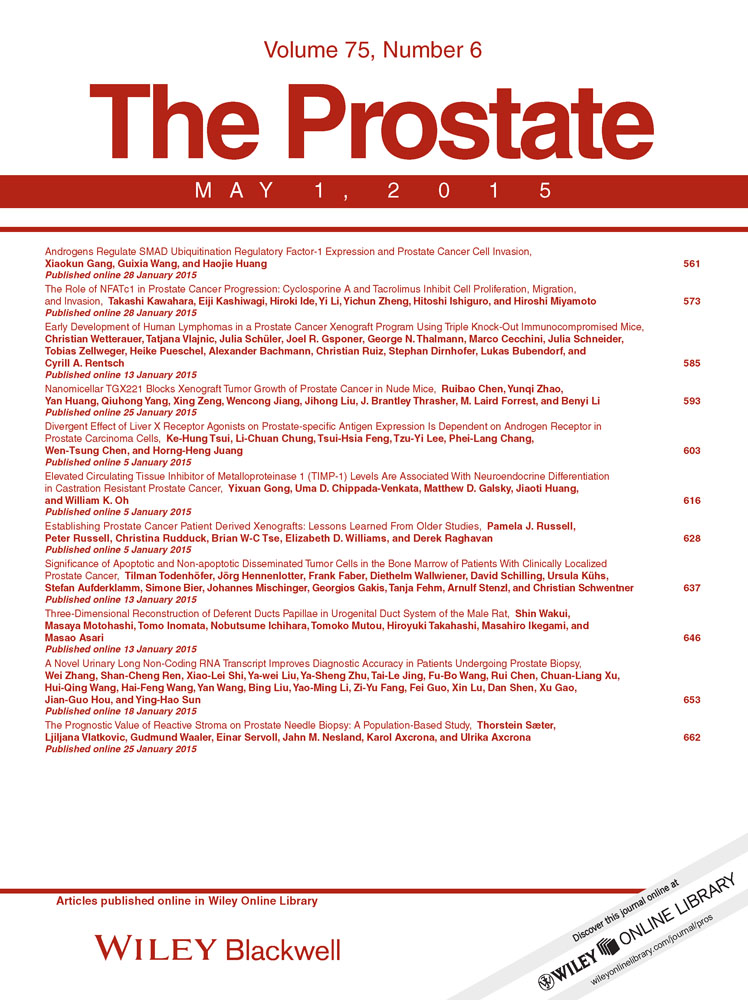Early development of human lymphomas in a prostate cancer xenograft program using triple knock-out Immunocompromised mice
Abstract
Background
There is an urgent need for preclinical models of prostate cancer; however, clinically relevant patient-derived prostate cancer xenografts (PDXs) are demanding to establish.
Methods
Sixty-seven patients who were undergoing palliative transurethral surgery or radical prostatectomy for histologically confirmed, clinically relevant prostate cancer were included in the study. Fresh prostate cancer tissue was identified by frozen analysis in 48 patients. The cancer tissue was transplanted subcutaneously and under the renal capsule of NSG and NOG mice supplemented with human testosterone. All growing PDXs were evaluated by histology and immunohistochemistry.
Results
Early assessment of the animals at least three months after transplantation included 27/48 (56.3%) eligible PDX cohorts. PDX growth was detected in 10/27 (37%) mouse cohorts. Eight of the ten PDXs were identified as human donor derived lymphomas, including seven Epstein Barr virus (EBV)-positive diffuse large B-cell lymphomas and one EBV-negative peripheral T-cell lymphoma. One sample consisted of benign prostatic tissue, and one sample comprised a benign epithelial cyst. Prostate cancer was not detected in any of the samples.
Conclusions
Tumors that arise within the first three months after prostate cancer xenografting may represent patient-derived EBV-positive lymphomas in up to 80% of the early growing PDXs when using triple knockout NSG immunocompromised mice. Therefore, lymphoma should be excluded in prostate cancer xenografts that do not resemble typical prostatic adenocarcinoma. Prostate 75: 585–592, 2015. © 2015 Wiley Periodicals, Inc.




